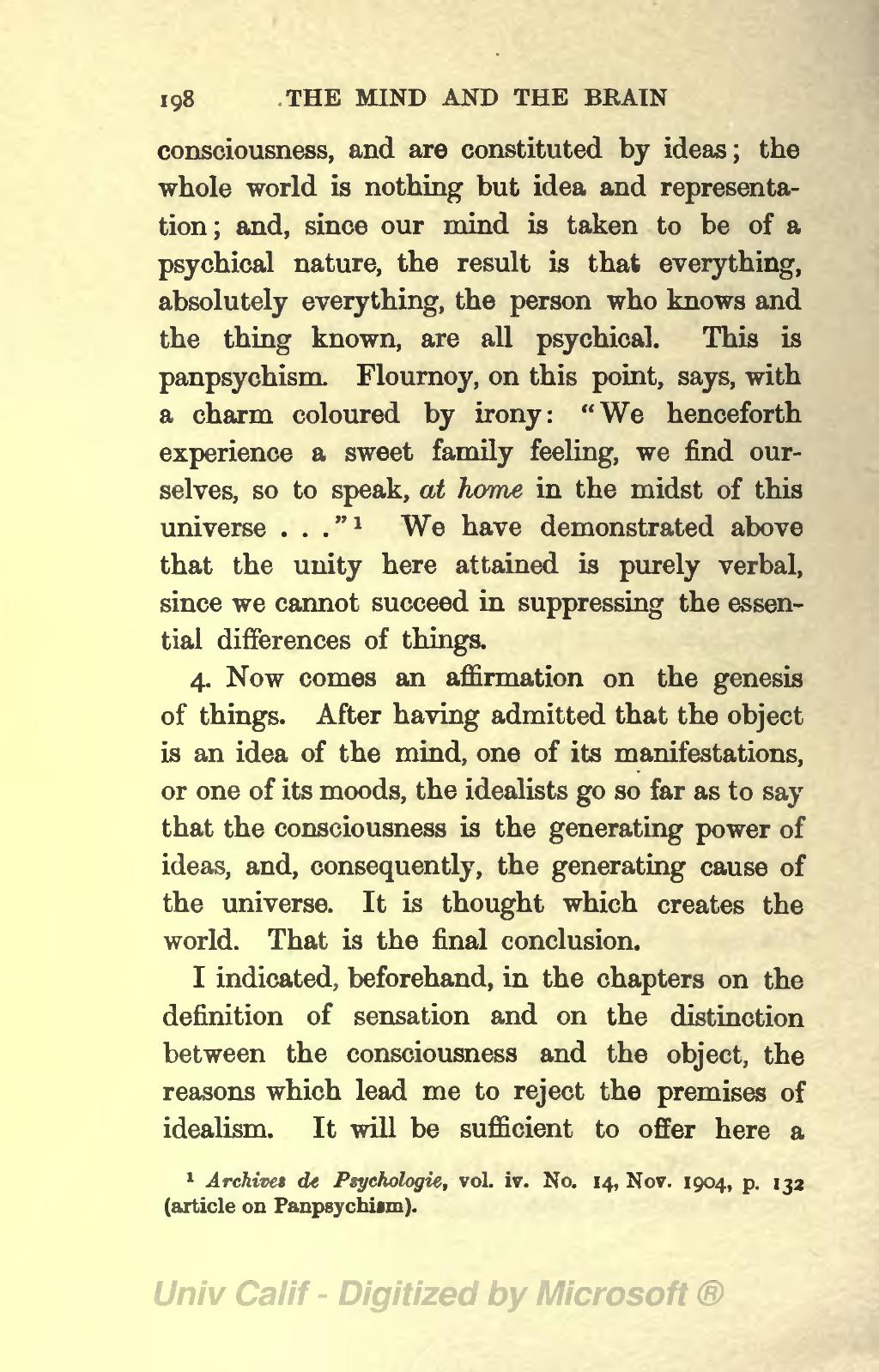consciousness, and are constituted by ideas; the whole world is nothing but idea and representation; and, since our mind is taken to be of a psychical nature, the result is that everything, absolutely everything, the person who knows and the thing known, are all psychical. This is panpsychism. Flournoy, on this point, says, with a charm coloured by irony: “We henceforth experience a sweet family feeling, we find ourselves, so to speak, at home in the midst of this universe . . .”[1] We have demonstrated above that the unity here attained is purely verbal, since we cannot succeed in suppressing the essential differences of things.
4. Now comes an affirmation on the genesis of things. After having admitted that the object is an idea of the mind, one of its manifestations, or one of its moods, the idealists go so far as to say that the consciousness is the generating power of ideas, and, consequently, the generating cause of the universe. It is thought which creates the world. That is the final conclusion.
I indicated, beforehand, in the chapters on the definition of sensation and on the distinction between the consciousness and the object, the reasons which lead me to reject the premises of idealism. It will be sufficient to offer here a
- ↑ Archives de Psychologie, vol. iv. No. 14, Nov. 1904, p. 132 (article on Panpsychism).
